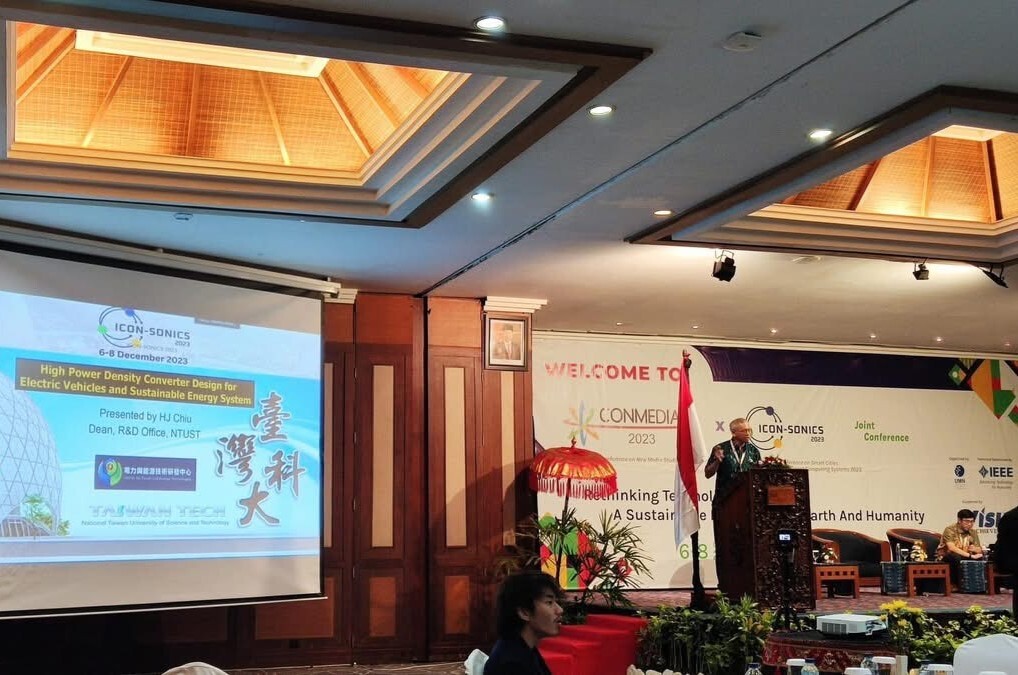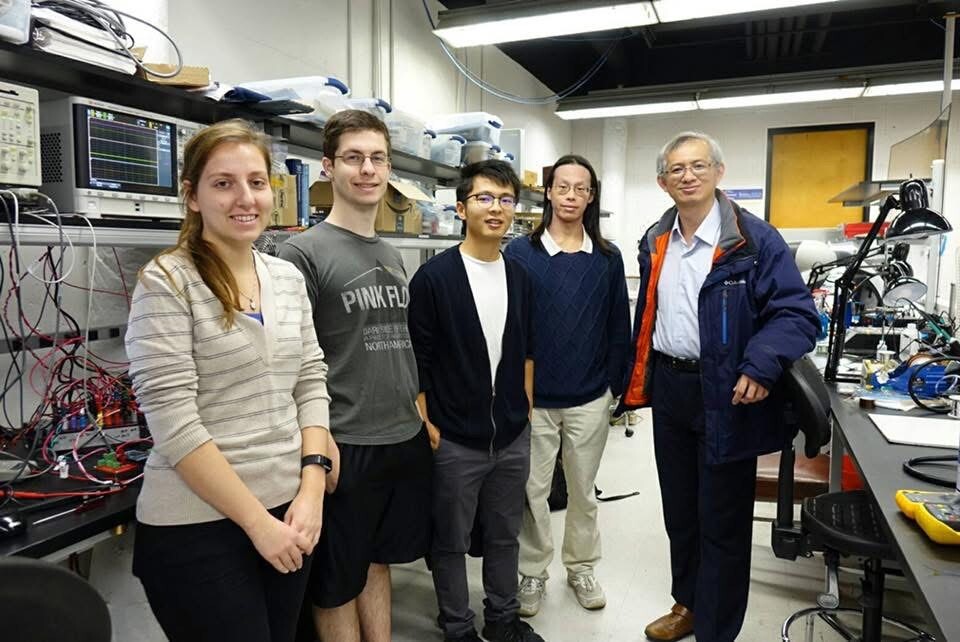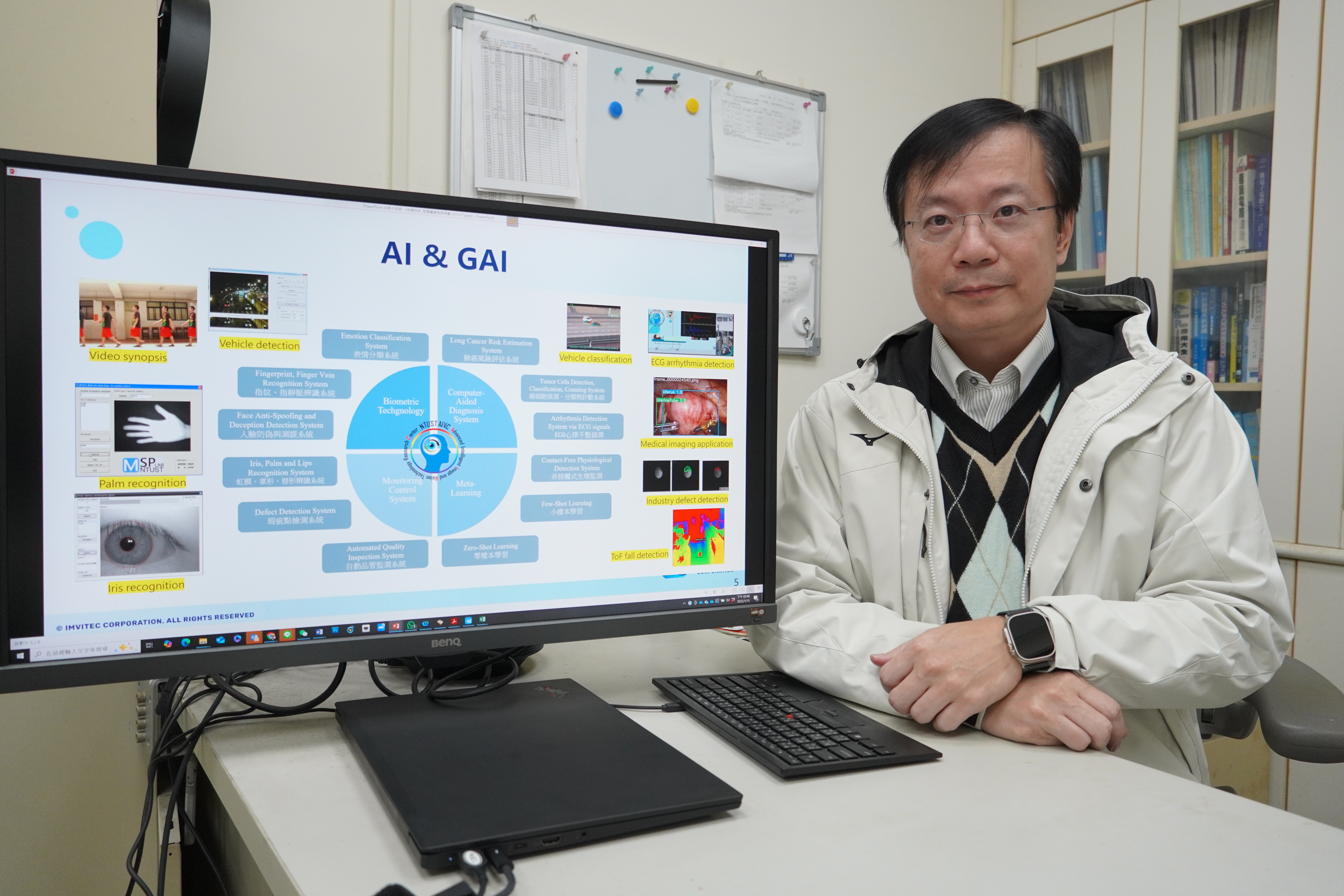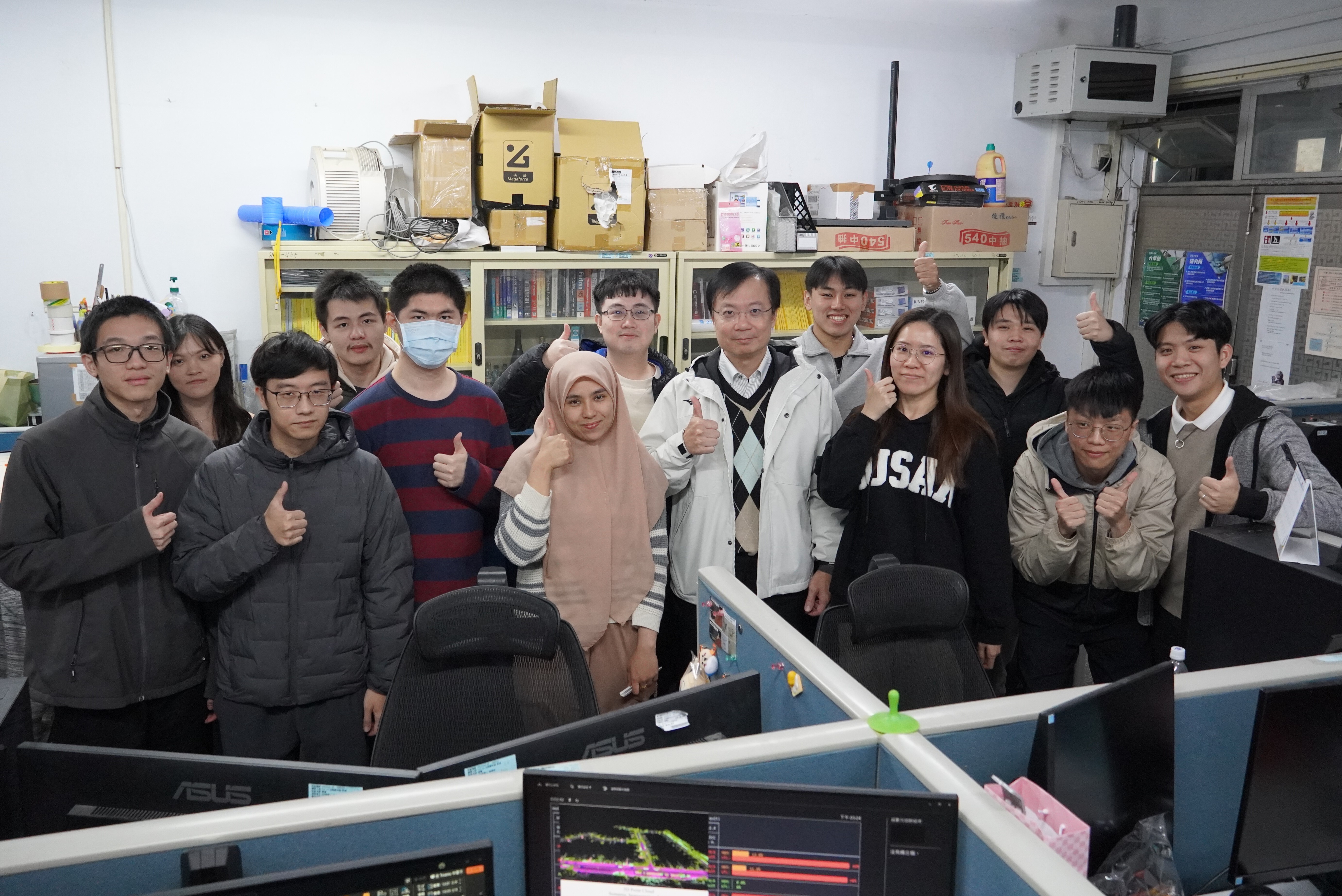Taiwan Tech professors Huang-Jen Chiu and Jing-Ming Guo were selected as 2025 IEEE Fellows for advancing power electronics and AI vision.
The “Institute of Electrical and Electronics Engineers (IEEE)”, which gathers top scholars in the fields of electronics, electrical engineering, and information technology, recently announced the 2025 IEEE Fellow list. Distinguished Professor in the Department of Electronic and Computer Engineering, Huang-Jen Chiu, and Distinguished Professor in the Department of Electrical Engineering at Taiwan Tech, Jing-Ming Guo, were honored with the distinction, joining the top 0.1% of the global IEEE membership of hundreds of thousands.
IEEE Fellow is one of the highest honors for researchers in the field of electronics and electrical engineering. Professor Huang-Jen Chiu leads a team applying expertise in compound semiconductor materials, such as Gallium Nitride and Silicon Carbide, to high-power density energy conversion technologies. These innovations are critical in industries like AI server power supplies, electric vehicles, and renewable energy. He has also responded to industry needs by successfully developing micro solar inverters and wireless power conversion technology for vehicles, enhancing inverter efficiency and reducing size, thus creating value for the industry.

Distinguished Professor in the Department of Electronic and Computer Engineering at Taiwan Tech, Huang-Jen Chiu, has been invited multiple times to give IEEE Distinguished Lecturer talks, sharing his research achievements across countries including the U.S., China, Japan, South Korea, Singapore, Malaysia, Vietnam, Indonesia, Poland, India, and Brazil. He was also honored with the IEEE Fellow distinction in 2025.
Dr. Huang-Jen Chiu emphasized that the role of universities is to conduct forward-looking research for 3 to 5 years, helping industries plan for the future. Through industry-academia collaboration and technology transfer, universities play a key role in driving industrial upgrades. He specifically noted the rapid growth of the AI industry, which consumes significant energy. To address this, his team is actively developing new materials and components to improve high-efficiency power technologies, applying them in AI and electric vehicle sectors to solve industry challenges.

Professor Huang-Jen Chiu's research team, along with students, has developed a technology for testing three-phase inverters. This technology can be applied in uninterruptible power systems and electric vehicle charging systems, converting the direct current power provided by the plug into alternating current power used by electrical devices, ensuring stable and reliable power supply for both appliances and electric vehicles.
Professor Huang-Jen Chiu is actively engaged in exchanges with academic and research institutions in the U.S., Japan, South Korea, India, Poland, the Czech Republic, and other countries. He emphasizes, “Academic research provides the foundation, industry-academia collaboration is the solution, and talent cultivation is the goal!” He believes that academic research requires not only solid fundamentals but also passion and perseverance. Diverse and practical research directions can help bridge the gap between academia and industry. Professor Chiu also encourages students to spend at least one year abroad to broaden their perspectives and become internationally-minded professionals. These talents will, in turn, contribute to Taiwan's industries, creating a positive cycle.

Professor Huang-Jen Chiu (first from right) and his research team have recruited many outstanding international students. He also encourages Taiwan's vocational students will not limit themselves to a certain field, but actively improve their foreign language skills, broaden their international perspectives, and enhance their competitiveness.
In the field of image vision AI analysis and industrial applications, Dr. Jing-Ming Guo, Distinguished Professor in the Department of Electrical Engineering, has made significant contributions to digital halftoning technology. He holds the highest number of publications on digital halftoning in the world’s largest database, IEEE Xplore. In recent years, he has expanded his research into cutting-edge applications such as generative AI, bioinformatics recognition, medical image analysis, AI vision analysis and tracking, and multimedia security. Through these efforts, he is driving the development and application of AI technology across multiple industries.

Distinguished Professor in the Department of Electrical Engineering at Taiwan Tech, Jing-Ming Guo, has dedicated himself to the innovative development of artificial intelligence, working to create an AI tool diffusion platform. His goal is to lower the technical barriers for the public, enabling users without professional backgrounds to easily build their own AI solutions. For these efforts, he was recognized as an IEEE Fellow in 2025.
Since being seconded to the Industrial Technology Research Institute (ITRI) in 2022 as the Chief Technology Officer of the Institute for Information Industry and the Service Science Center, Professor Jing-Ming Guo has helped companies develop tailored generative AI systems. Leading his team, he optimized models for companies like Hsinchu Logistics, Chunghwa Telecom, Taiwan Power Company, Taiwan Water Corporation, and Chimei Technology, aligning them with internal processes and cybersecurity standards. By integrating the companies' accumulated expertise and data, he significantly enhanced the models' understanding and accuracy, making AI a key driver for business decision-making, customer service, and product development.

Professor Jing-Ming Guo emphasizes foundational training and critical thinking for his students, encouraging them to regularly read and discuss papers from top international journals to stay updated with academic developments. The photo shows Professor. Guo with his research team and students.
Additionally, Jing-Ming Guo has long collaborated with the industry. He previously worked with the Japanese company EBARA on semiconductor wafer polishing (CMP) process parameter optimization research. By combining high-precision imaging with deep learning technology for parameter optimization, he successfully improved production efficiency and significantly reduced parameter errors, bringing substantial benefits to the company. Professor Jing-Ming Guo plans to connect more resources and work with both senior and young professors to build a research center that emphasizes both academic and applied aspects. This center will integrate innovative applications of discriminative AI and generative AI, with practical implementation across various industries, and cultivate the next generation of technological talent with a global vision and innovative abilities.

Professor Jing-Ming Guo holds the world record for the highest number of published papers on halftone digital watermarking technology. This technology overlays two images to reveal a copyright logo, effectively enhancing digital copyright protection capabilities.
